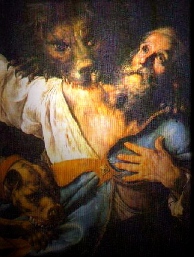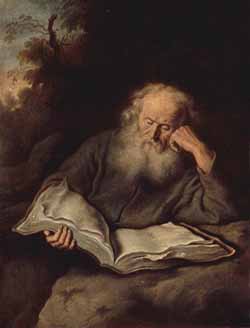Introduction to Islam

 This is one of the many blog entries I was halfway through before being distracted by something shiny… I started preparing this series of entries around the time of the media storm from the “Burn a Qur’an Day“. I was rather surprised by the reaction of many Christians to this dispute, but what I found even more troubling was their apparent lack of basic familiarity with the religion of Islam.
This is one of the many blog entries I was halfway through before being distracted by something shiny… I started preparing this series of entries around the time of the media storm from the “Burn a Qur’an Day“. I was rather surprised by the reaction of many Christians to this dispute, but what I found even more troubling was their apparent lack of basic familiarity with the religion of Islam.
In this series of posts I will not be disputing any assertion made by Islam. I only intend to provide a brief sketch of the religion. I would like this to be an introduction and brief overview for the average Christian who is unaware of Islam’s claims.
Please note, I have done my best to ensure factual accuracy in all these posts and have used Islamic sources as much as possible to ensure that I’m not propagating Christian misconceptions of Islam. I did send this to some Muslim friends for comment, but I have yet to hear back. If you are a follower of Islam and believe that I have misrepresented your religion, please drop me an email and I will remedy the situation.
Muhammad
Islam (“submission to God”) was founded by Muhammad in the early 7th Century, a little over six hundred years after Jesus’ ministry, seven hundred and sixty-six miles away from Jerusalem in Arabia. In the early part of Muhammad’s life he was a successful trader and then, through marriage to a wealthy widow, he became an important figure.
Thanks to his wealth, at the age of forty, Muhammad was able to spend much of his time in meditation in a cave on the outskirts of Mecca. It is said that it was during this time that he began to receive messages from Allah (God) through Jibril (the Archangel Gabriel). He was told that these messages were to be preached to all mankind. They were subsequently written down by his companions and collected together to form the Muslim holy book: the Qur’an/Koran (literally “the recitation”).
Muhammad’s followers were initially fairly small in number, consisting mainly of his own family. There were soon violent persecutions in Mecca against the Muslims, causing Muhammad to move to Medina where Islam was more favourably received. A little later, the first jihad (holy war) took place. Muhammad returned to Mecca and destroyed the idols there and within eight years Muslim armies had conquered (and effectively converted) the whole of Arabia.
 Well, we’re finally here! The last letter of St. Ignatius of Antioch! I’m posting this a bit earlier than usual because the next couple of weeks are going to be rather busy.
Well, we’re finally here! The last letter of St. Ignatius of Antioch! I’m posting this a bit earlier than usual because the next couple of weeks are going to be rather busy. Wow, they just keep coming! Soon there will be published yet another “user friendly” resource for the writings of the Early Church Fathers!
Wow, they just keep coming! Soon there will be published yet another “user friendly” resource for the writings of the Early Church Fathers! 
 I always try to encourage everyone I know to become familiar with their writings and discover the wisdom they have to pass on to us. I’ve just been notified of a new website,
I always try to encourage everyone I know to become familiar with their writings and discover the wisdom they have to pass on to us. I’ve just been notified of a new website,